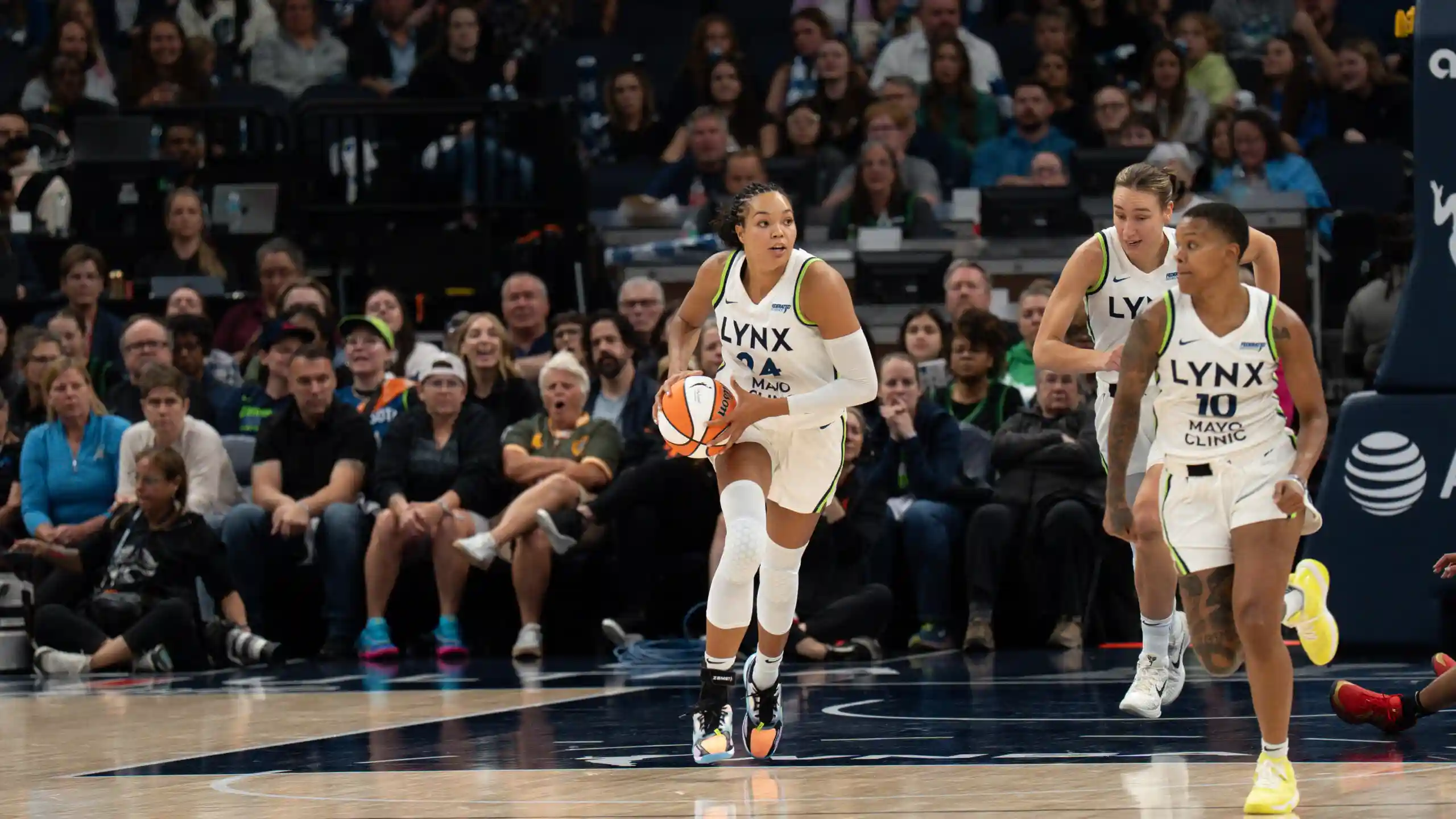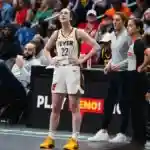The WNBA and its players’ union appear unlikely to finalize a new collective bargaining agreement before the Oct. 31 deadline, raising the possibility of an extension or even a work stoppage for the first time in league history.

A person familiar with the negotiations told Front Office Sports that both sides may need to extend the deadline to avoid an immediate disruption. That scenario has played out before — in 2019, the WNBA and the Women’s National Basketball Players Association agreed to a 60-day extension before ultimately finalizing a new CBA in January of the following year.
This time, though, the stakes are significantly higher. The league is in the middle of unprecedented financial growth, record attendance, and long-term expansion plans. Missing the deadline would not only stall free agency and expansion procedures but could also create a labor standoff that has never happened in the WNBA’s nearly three-decade history.
Union Sees Lack of Urgency from WNBA
Union leaders have repeatedly said they are pushing for what they call a “transformational” deal, with players seeking a structure that reflects the league’s growth. WNBPA executive director Terri Carmichael Jackson said in a statement that the union believes the league has failed to match the urgency required.
“The players are working diligently to achieve a transformational CBA that builds on the growth, momentum, and positive news surrounding women’s sports and the W,” Jackson said. “As we approach the 60-day mark, the league’s lack of urgency leaves players wondering if it is focused on making this work or just running out the clock. Fans do not want that. They are with the players in demanding a new standard for the W.”
The league countered that a deal remains its top priority and pushed back on the union’s suggestion of inaction. A spokesperson emphasized that the WNBA has been in consistent dialogue with the union and intends to keep negotiating until an agreement is reached.
“We have been clear with the WNBPA but so there is no doubt—our number one priority is to get a new collective bargaining agreement completed that addresses the players’ priorities while also supporting the long-term growth and success of the league and teams,” a league spokesperson told FOS, adding that additional meetings are already scheduled through the remainder of the season.
Napheesa Collier: “We’re Not Making a Lot of Progress”
Minnesota Lynx forward Napheesa Collier, who serves as vice president on the executive committee of the WNBPA, has been outspoken about the state of negotiations. She said the players feel the process has stalled with little tangible progress made.
“It feels like it’s kind of same old, same old. We’re not making a lot of progress … it’s unfortunate, we obviously want to get a deal done and it feels like the league doesn’t have that same urgency and the deadline is quickly approaching,” Collier said. “I feel like we’re not close right now.”
Collier has also emphasized the broader standards the players are seeking, particularly around facilities and day-to-day resources that many franchises still lack. She praised Unrivaled, a new women’s basketball league, for showcasing the type of environment players believe should be standard in the WNBA.
“I think it’s just great that we’re opening up people’s eyes to what it should be like,” she said. “For so long we have been forced to accept less than what we should be owed. Like everyone should have a practice facility, everyone should have access to a gym 24/7, everyone should have privacy when they’re changing and not in front of strangers.”
Napheesa Collier on the CBA discussions
— Andrew Dukowitz (@adukeMN) August 26, 2025
“It feels like it’s kind of same old, same old, we’re not making a lot of progress… it’s unfortunate, we obviously want to get a deal done and it feels like the league doesn’t have that same urgency and the deadline is quickly… pic.twitter.com/fRuSpiaIae
Revenue Sharing at Center of Dispute
Revenue sharing is expected to be the central sticking point. In the NBA, players receive roughly half of the league’s basketball-related income, with the salary cap tied directly to revenue. That structure helped fuel a 10% cap increase heading into the 2025–26 season.
The WNBA, by contrast, operates under a fixed model that caps annual growth at 3%. That provision was negotiated at a time when the league’s business model was less stable. Since then, however, the WNBA has announced an 11-year, $2.2 billion media rights deal and collected record expansion fees — $250 million apiece from Cleveland, Detroit, and Philadelphia.
Players say the business growth should directly translate to their compensation and benefits. The league, while acknowledging the growth, has insisted the new CBA must balance player demands with long-term financial sustainability.
Satou Sabally Criticizes Overseas, Unrivaled Restrictions
Phoenix Mercury forward Satou Sabally, also a prominent union voice, added another layer to the debate. She criticized the WNBA for discouraging players from competing overseas or in Unrivaled, saying those opportunities often provide stronger financial incentives.
“I wasn’t aware that they already publicly announced that. I mean that’s wrong,” Sabally told Desert Storm Media. “I made more money at Unrivaled than any year in my entire WNBA career.”
Her remarks highlight the financial realities many players still face. For years, top WNBA players sought supplemental income in overseas leagues, with some making several times their WNBA salaries. The growth of Unrivaled has added a domestic alternative, raising questions about whether the WNBA can compete financially.
Phoenix Mercury forward Satou Sabally said the WNBA does not want its players to play overseas or in Unrivaled.
— Desert Wave Media (@DesertWaveCo) August 27, 2025
“I wasn’t aware that they already publicly announced that. I mean that’s wrong. I made more money at Unrivaled than any year in my entire WNBA career.”#WNBA pic.twitter.com/CMHgNHgUqa
WNBA Expansion Adds Pressure
The urgency is heightened by expansion. The WNBA is preparing to add two new franchises in 2026 — the Toronto Tempo and Portland Fire — with Cleveland, Detroit, and Philadelphia slated to join by 2030. Expansion drafts and free agency rules cannot be set until a new CBA is in place, making the timing of the agreement crucial.
Without a deal, the league risks disrupting both its offseason calendar and its ability to integrate new franchises smoothly. For players, expansion represents not only new markets but also the possibility of much-needed roster growth — one of the key priorities in negotiations.
In 2019, an extension allowed talks to continue without a work stoppage. While such a move is possible again, both sides acknowledge the stakes are higher this time. The league has never lost games to a lockout or strike, though the 2003 season did see a delayed draft and preseason.
Negotiations at a Crossroads
The players have said they are prepared to remain at the negotiating table until a deal is secured, no matter how long it takes. They believe the timing — coming at a moment of unprecedented visibility and revenue growth — gives them leverage they did not have in past negotiations.
“Fans do not want delays or lowered standards,” Jackson said. “They are with the players in demanding a new standard for the W.”
For Collier, the deadline pressure is clear. “The deadline is coming fast,” she said. “I feel like we’re not close right now.”
